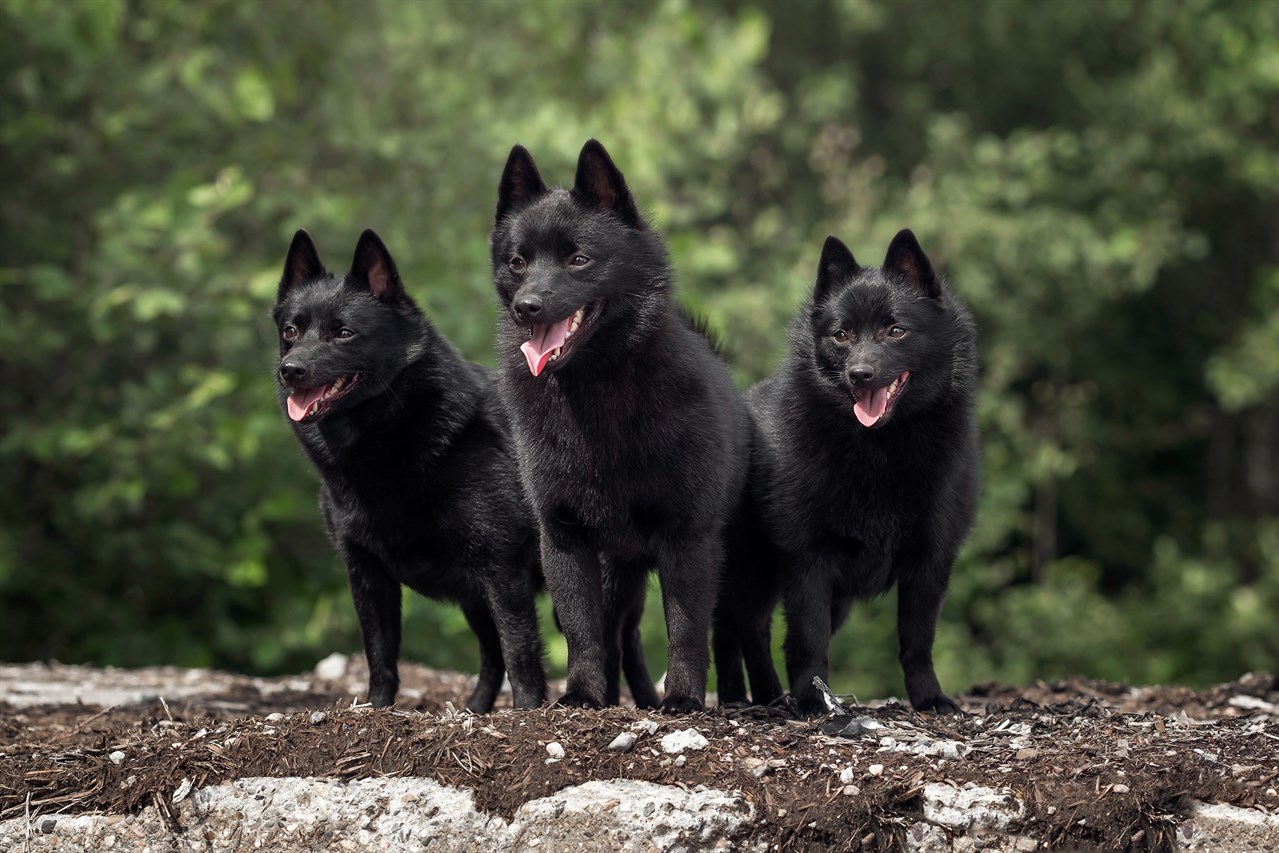Schipperke: The Little Black Devil of Dog Breeds

Introduction
In the vast world of dog breeds, few are as distinctive and charming as the Schipperke. Often referred to as the "Little Black Devil," this small yet spirited breed has captivated dog enthusiasts for generations. Their unique history, compact size, striking coat, and mischievous appearance make them a breed of great interest and fascination. In this comprehensive long-form piece, we will delve into the intriguing world of Schipperkes, exploring their history, breed group, size, coat, colour, and appearance, all while uncovering the answer to the question: "What dog breed is known as the Black Devil?"
Breed History
The history of the Schipperke is rich and shrouded in mystery, adding to their allure. Originating in Belgium, particularly in the Flemish region in the late 17th century, Schipperkes were initially bred as working dogs on barges and canal boats. Their name, "Schipperke," is derived from the Flemish word "schipper," which means boatman or skipper. These dogs earned their keep by guarding the cargo, hunting vermin, and alerting their owners to potential dangers along the waterways.
Schipperkes' early ancestors likely included small black sheepdogs and other local terrier breeds. Over time, breeders selectively developed the Schipperke's distinctive characteristics, such as their small size, pointed ears, and dense, black coat.
Also Known As
The Schipperke is also known as the Little Black Devil or Little Captain by lovers of the breed.
Breed Group
The Schipperke belongs to the non-sporting group of dog breeds. This group encompasses a diverse range of breeds with distinct characteristics and histories. While Schipperkes may not fit neatly into a specific working or utility category, their tenacity, intelligence, and agility make them versatile companions. They excel in various roles, from watchdogs and rat hunters to charming family pets.
Breed Size
Schipperkes are small dogs with a compact and well-proportioned build. Adult Schipperkes typically stand between 25 to 33 cm tall at the shoulder and weigh anywhere from 3 to 9 kg. Their diminutive size, combined with their boundless energy, makes them well-suited for both apartment living and homes with yards.
Breed Coat, Colour, and Appearance
One of the most distinguishing features of the Schipperke is their striking coat. They are known for their dense, double coat that consists of a soft, fluffy undercoat and a straight, harsh outer coat. This coat provides insulation and protection, which was vital during their early days as barge dogs.
The Schipperke's coat comes in a single colour: black. This monochromatic palette is a key characteristic of the breed and contributes to their nickname as the "Little Black Devil." Their coat is not only solid black but also glistens with a sleek, shiny finish, giving them a regal and almost supernatural appearance.
Beyond their coat, Schipperkes have a distinctive head with a fox-like expression. Their eyes are oval and dark, radiating intelligence and curiosity. Their small, pointed ears stand erect and contribute to their alert and lively appearance. Schipperkes have a tail that is customarily docked, though some countries have banned this practise, opting for a natural, slightly curved tail.
What Dog Breed is Known as the Black Devil?
The dog breed known as the "Black Devil" is none other than the Schipperke. This nickname encapsulates their mischievous and fearless nature. Despite their small size, Schipperkes are renowned for their boldness, independence, and boundless energy. They are natural watchdogs and will fearlessly protect their families and territory. Their keen sense of alertness and readiness to take on challenges contribute to their fearsome reputation as the "Black Devil."
Conclusion
In the world of dog breeds, the Schipperke stands out as a small yet mighty force to be reckoned with. Their history as barge dogs, their membership in the non-sporting group, their compact size, and their stunning black coat all contribute to their unique and captivating character. Known as the "Black Devil," Schipperkes possess a spirited nature that has earned them a special place in the hearts of dog lovers worldwide. With their intelligence, loyalty, and fearlessness, Schipperkes prove that the best things often come in small packages, and they are a breed to be celebrated for their distinctive charm and undeniable allure.
Continue reading our Schipperke in-depth articles
- Schipperke Temperament and Behaviour
- Schipperke Training and Socialisation
- Schipperke Toilet Training
- Schipperke Barking Habits
- Schipperke Grooming Requirements
- Schipperke Shedding Behaviour
- Schipperke Sleeping Behaviour
- Schipperke Diet and Feeding Requirements
- Schipperke Average Lifespan
- Schipperke Exercise Requirements
- Schipperke Common Health Issues
- Schipperke Suitability Guide
- Schipperke Advantages
- Schipperke Disadvantages
- Schipperke Cost to Buy and Own
- Schipperke Clubs and Links
- Selling Schipperke Puppy Litters and Dogs
- Buying Schipperke Puppies and Dogs
- Schipperke Alternatives
Schipperke puppies for sale
- Find Schipperke puppies for sale in ACT
- Find Schipperke puppies for sale in NSW
- Find Schipperke puppies for sale in NT
- Find Schipperke puppies for sale in QLD
- Find Schipperke puppies for sale in SA
- Find Schipperke puppies for sale in TAS
- Find Schipperke puppies for sale in VIC
- Find Schipperke puppies for sale in WA